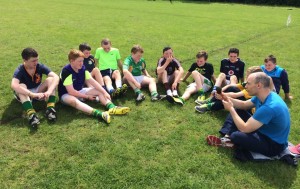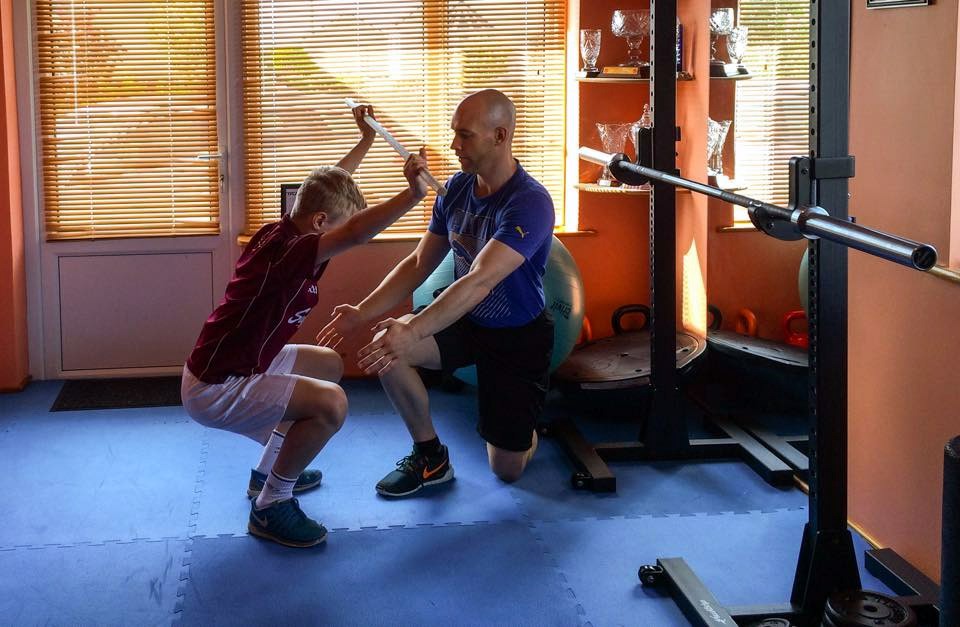This blog is probably going to be a mix between a rant, and an educational piece for parents of young athletes. It is motivated by the developing situation of fitness coaches taking on junior clientele for athletic development, without necessarily having the requisite qualifications and/or experience. Let me be clear: having, for example, a dancing background, no matter how prestigious, does not of itself qualify one to coach strength and conditioning to young dancers. Nor does having a “Fitness qualification” automatically mean one is ready to coach young athletes, who are considered children until the age of eighteen.
To elaborate, coaching young people is quite a bit more involved than coaching adults. If children are coached as mini-adults, it can have detrimental results. It requires specific expertise and study.
On a personal note, when I realised I wanted to specialise in coaching children, I researched and sourced educational material. I qualified as a Youth Fitness Specialist Level 1, 2 & 3 as well as High School Strength & Conditioning Coach via the International Youth Conditioning Association. I made it my business (and still do) to attend conferences geared towards coaching children, where I learnt best practices from the coaching-World’s best, e.g. Dr. Ian Jeffries, Kelvin Giles, Gary Schofield, Paudie Roche, Loren Landow, Dr. Mike Martino, Dr. Dale Canavan, Sergio Lara-Bercial, and many more, too numerous to list…
Youth Athletic Development is a growing and exciting development in Ireland. Interestingly, it comes at a time when Physical Literacy is at its lowest, and competence at Fundamental Movement Skills is quickly deteriorating, so many more youth fitness specialists are needed. As coaches of young athletes, we must have the expertise to regress exercises as far back as necessary, and coach, literally from the ground up.
My fellow coaches who wish to delve into this growing field of youth athletic development, I welcome you, and wish you well. But, for the sake of the child’s well-being and your reputation, do your homework and learn how to coach a child. For the parents of young, ambitious athletes looking to gain a physical advantage, please make sure the coach you choose understands the many differences between a developing body, and a fully matured one. Most fitness or S&C coaches will be first-aid qualified. However, if coaching your children, find out if the coach is:
- Garda-vetted
- has taken the “Code of Ethics and Good Practice in Children’s Sport” course run by the local Sports Partnership, and,
- crucially, is operating from a Child Protection Policy that the coach can actually show you.

Some considerations for coaches:
- A one-size-fits –all approach does not work. Consider the various personalities (D.I.S.C.) and learning modalities of children.
- Approaches will vary from pre-pubescent to teenager – form-based V outcome-based coaching
- Coaching is part Science, part Art
- Praising success-alone, leads to avoidance of failure, and failure is a key stepping-stone to bigger success.
- What should you teach first – landing mechanics or jumping mechanics? Deceleration or acceleration?
- Young athletes can tolerate high volume but not intensity? Or is it the reverse?
- Coaching young athletes cannot be about physical training alone – how do you factor in social and cognitive development?
- How do growth spurts affect progress?
- The development of strength in young athletes is usually due to more efficient neuromuscular coordination, rather than muscle size.
- Do you know the speed increases teenagers will gain, annually, just from natural maturing, whether being trained or not? This is crucial to knowing if your coaching is eliciting true gains, or if it is due to growth.
- How do girls differ to boys with regard to hormonal influence, aerobic endurance, upper/lower body strength, fat-free-mass, etc..? Before and after puberty?
- Is high intensity interval training recommended or contraindicated for young athletes? Pre or post puberty? Why?
These are just some of the numerous variables Youth coaches must consider. For outstanding quality in youth athletic development, I can be reached at 087-2070577 or via the website www.shanefitzgibbon.ie
Shane Fitzgibbon, B.Sc. NCSC, YFS, HDAP.
IYCA International Youth Coach of the Year 2015


